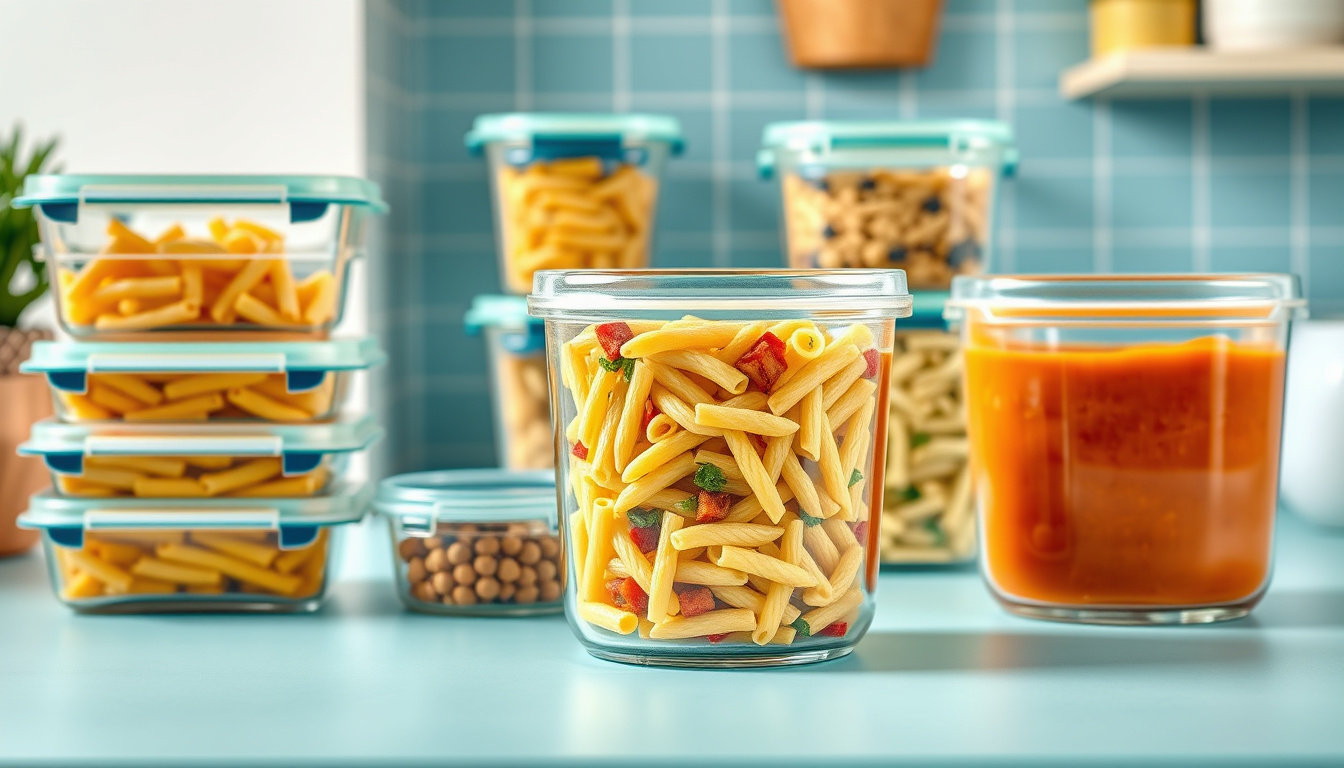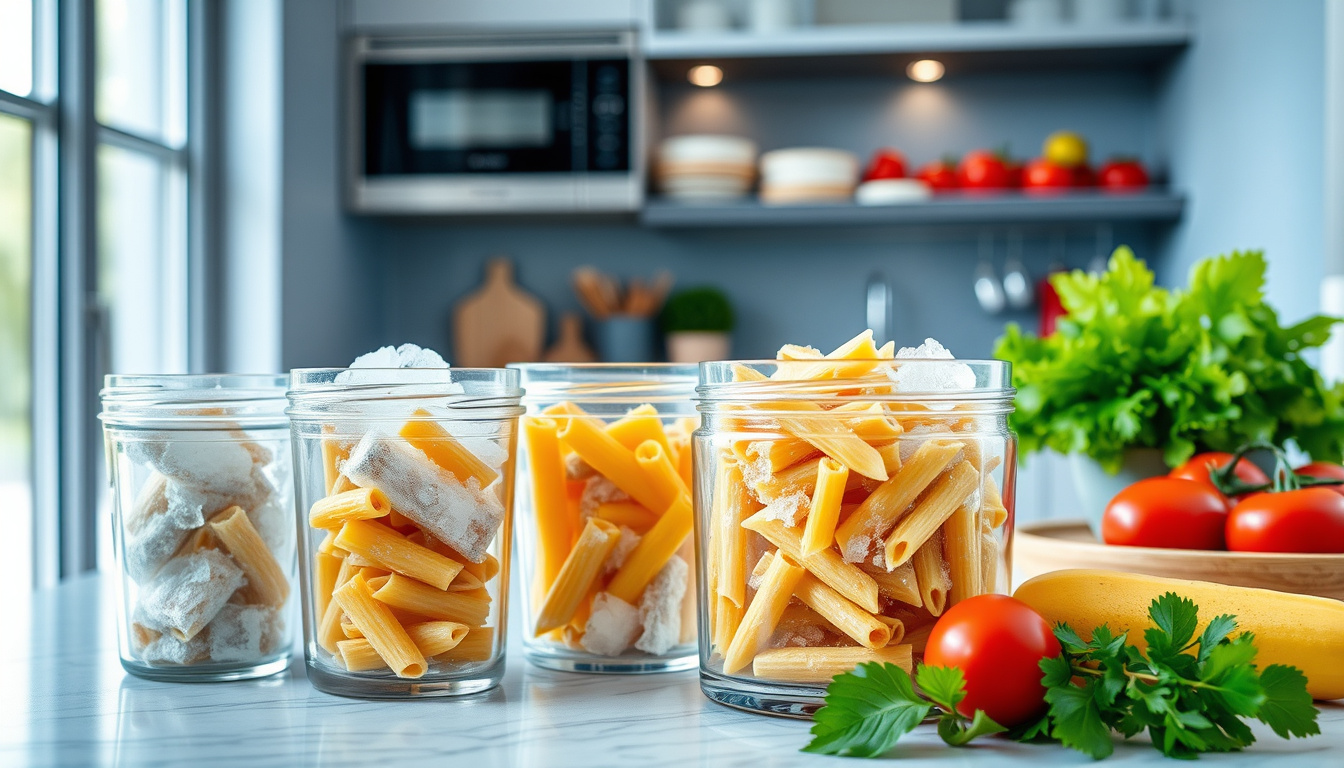Freezing pasta in glass containers is an excellent way to preserve your favorite dishes, save time during busy weeknights, and reduce food waste. While many people gravitate toward plastic for its convenience, glass containers provide a chemical-free, eco-friendly alternative. This guide explores how to properly freeze pasta in glass containers, addressing common concerns and tips drawn from various expert sources.

Why Choose Glass Containers for Freezing Pasta?
-
Healthier Option: Glass is a non-reactive material that doesn’t leach chemicals into food, unlike some plastics, especially under low temperatures.
-
Versatility: Glass containers can usually go from the freezer to the oven (if oven-safe) and can be used for storage in the pantry or refrigerator as well.
-
Visibility: You can easily see what’s inside your container, making it simpler to remember what you have stored.
-
Reduced Waste: By using glass containers, you can contribute to reducing plastic waste, making it a more environmentally-friendly choice.
Best Practices for Freezing Pasta in Glass Containers
1. Choose the Right Containers
Opt for straight-sided glass containers or mason jars. These are less likely to break when freezing food due to their uniform shape, which facilitates even expansion. Avoid jars with rounded shoulders as they can be more prone to breaking due to uneven pressure during freezing.
2. Prepare Pasta for Freezing
Cool Down: Before freezing, allow your pasta to cool completely. Hot food can lead to thermal shock, increasing the risk of breaking the glass.
Portion Control: Consider freezing your pasta in meal-sized portions. This can make defrosting much easier and quicker.
3. Leave Sufficient Headspace
When packing your pasta, leave at least an inch of headspace at the top of the container. This space is critical for allowing the contents to expand as they freeze, preventing your jars from cracking.
4. Lids Matter
You can use regular metal lids that come with canning jars, or opt for plastic freezer lids. Just ensure they are not too tight when sealing the jars, as the expanding air inside needs room too. For new users, a good practice is to let your pasta freeze for a while before sealing the jar completely.
5. Label Your Containers
Clearly label each jar with the contents and the freezing date. This helps you keep track of your pasta meals and avoid the dreaded mystery jar.
Thawing Frozen Pasta
When it comes time to enjoy your frozen pasta, the method of thawing is crucial.
-
Gradual Thaw: Place your glass container in the refrigerator overnight for a slow and safe thaw. This minimizes risks associated with sudden temperature changes that could crack the jar.
-
Countertop: Alternatively, you can set the jar on your countertop to defrost as well, but ensure you keep a close watch.
-
Avoid Direct Heat: Never place frozen glass directly into hot water or an oven, as this can lead to breakage due to thermal shock.
Common Troubles and Solutions
-
Fear of Breakage: Many people worry about glass breaking when freezing. Following the guidelines for headspace, using straight-sided jars, and cooling food adequately can significantly reduce this risk.
-
Using Recycled Jars: Store-bought jars, such as those from pasta sauce, can be reused for freezing but be careful to assess their sturdiness and thermal resistance.
Final Thoughts
Freezing pasta in glass containers is a practical and sustainable way to store meals for later use. By adhering to the simple guidelines of container selection, preparation, and proper thawing methods, you can enjoy delicious home-cooked pasta dishes with the ease of meal prep while ensuring fresh flavors every time. Embrace this method for not just pasta, but for other meals like soups and stews too. With a little practice, freezing in glass will become a seamless part of your kitchen routine!
>> Chest Freezer Reviews <<
>> Upright Freezer Reviews <<

